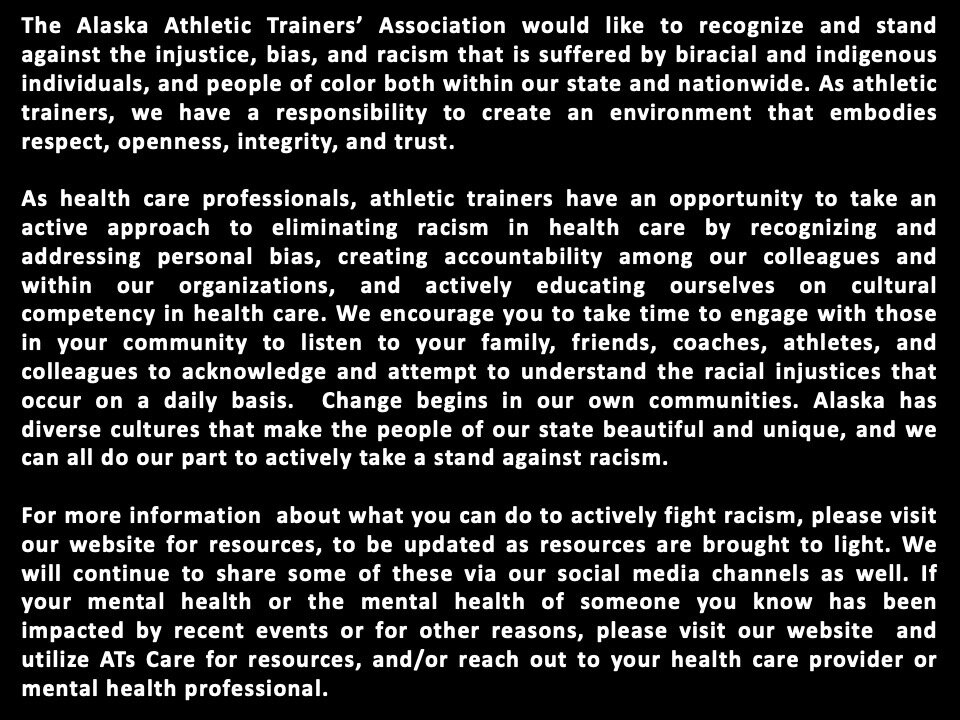Cultural Competency and Diversity Resources
The AATA would like to share the following resources to use and actions to take to help in the fight against racism and discrimination. This page will be updated as new resources are shared with us and is a compilation of resources from many different social media posts and publications (which are listed at the bottom of this page). Please share these with your friends, colleagues, and family members. This list is. by no means all-encompassing, and we encourage you to do your own research and educate yourself on how to be a better, more compassionate clinician.
Cultural Competency in Health Care and NATA Resources
Accounts/People to Follow
Anti-racism Project (lots more resources listed for you to explore here)
Things to Read, Listen to, and Watch
Articles:
Books:
“How to be an Anti-Racist” by Ibram X Kendi
“White Fragility: Why It’s So Hard for White People to Talk About Racism” by Robin DiAngelo
“So You Want to Talk About Race” by Ijeoma Oluo
Podcasts:
Videos:
Movies and TV Shows:
13th (Ava DuVernay) — Netflix
When They See Us — Netflix
Unnatural Causes — DVD (about racial health care disparities)
Other Actions You Can Take
Check in on your black/people of color and indigenous friends, family, partners, and colleagues
Learn about what it means to be anti-racist
Share resources with those around you
Do not center the narrative on you, and instead identify privilege and condemn it
Continue to be an ally and advocate, even when the outrage has subsided
Donate to groups such as your local Black Lives Matter Chapter
Support black and indigenous businesses
Ask yourself the following questions:
What bias do I have? (check your implicit bias with this test from Harvard)
What can you to do support people of color and indigenous people in your community?
How can you incorporate culturally competent practices into your care of patients?
How can you be actively anti-racist instead of just being “not racist?”
What do you want to/can you learn more about?
*Many of the preceding resources were adapted from a google document entitled “Anti-Racsim Resources,” an instagram post by sfbucketlist, and an article shared by NATA President Tory Lindley on twitter, written by Corinne Shutack. Additional resources were sourced from scientific journals and state associations.

